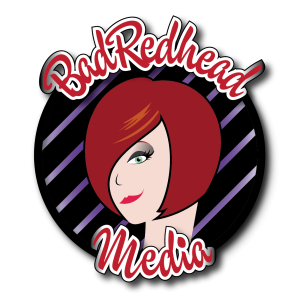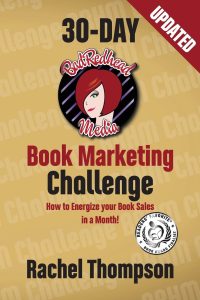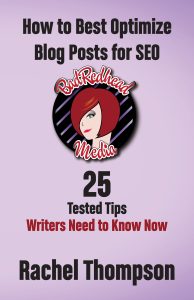How Do You Build An Audience Before You Have A Product? A Pre-Marketing Guide
*Updated December 2016*
I asked my Facebook friends last week what confused them the most about author marketing and social media. So for the next several weeks, myself, and several esteemed guests will be answering those questions for you! Thank you to all who answered. Here’s the first question:
Many aspiring authors or bloggers ask this question a lot, and really I see this as a question of confidence more than anything — what do I have to talk about? Why should people tune into my blog or social media channels if I don’t have anything for sale yet? Is this an ‘author platform’ issue?
Let’s deconstruct.
Pre-Marketing — When Do You Start?
Many authors start off blogging, so let’s begin there (and if you’re not blogging, you should be!). Your blog is your home, your place for folks to come in, take off their shoes, have a drink, and hang out awhile. Get to know YOU, and you get to know THEM. In other words, start building a relationship now (not to mention, it boosts your SEO and SMO).
Did you hear me mention anything about product, or selling? No, and it’s not because you don’t have anything to sell (because you do — you’re selling yourself, whether you realize it or not). You are utilizing relationship marketing skills as opposed to more old-school transactional (sales-focused) skills — building relationships for future sales and customer satisfaction. You’re also genuinely and authentically being yourself — letting people know you, and they are letting you know them. This is invaluable foundation-building time for whatever it is that you will be ‘selling’ in the future — a product (book), a business, or a service.
I suggest you begin your pre-marketing at least six months to one year prior to the release of your book. Even earlier is fine. Why? Because you are building relationships with your demographic, people who read your genre, and people with whom you share a common bond.
Where Is Your Demographic?
I know, it seems kind of ridiculous, but…remember, we ‘brand’ the author, not only the book. So since we’re marketing YOU, let’s make you easily visible. Twitter, Facebook (you must have a personal account where people ‘friend’ you to manage everything else over there — even if you never use it — so grin and bear it), a Facebook page (required for any product or service), Google+ (you may think it’s silly but Google is the largest search engine in the world, and they own Google+ so…), plus either Pinterest or SnapChat or Instagram or YouTube or TikTok — pick one.
You may think these visual apps are silly, but frankly, who cares? This isn’t about you or me — it’s about your buyers — your readers. If you are a YA author, you best be on Snapchat because that is where your demographic is. Most importantly, remember that social media is about building relationships, not ‘selling.’ Not having a product to sell is actually an excellent way for you to focus on being a person, not an automaton who constantly spouts ‘Buy my book!’ links, which is a turn-off anyway.
When You Release Your Book
Once your book is ready to go, you’ve built this base of people who have taken an interest in you, Jo Author. So now, when you tweet or post “Is anyone interested in beta-reading or reviewing,” you will have people READY TO GO. We’ve all seen the desperate, ‘Will anyone, anyone, review my book? Please?’ tweets go by, and feel kind of sad for the lonely, misguided soul because clearly, they have done ZERO pre-marketing. Not only that, but by asking anyone and everyone to review their book, they aren’t focusing on their demographic, risking poor reviews by having, say, a sci-fi fan review their romance book. Not a good fit. I’ve seen it happen, and it’s not pretty.
Here’s why that’s a mistake: it comes across as disingenuous. What’s in it for the reader to purchase and read your book if you’ve never approached them before? Nothing. It’s all about you, the author. But what if that person has known you for six months already, is part of a private reading group or inner circle you’ve created, and has signed up for the newsletter you’ve set up after you read this post (hint, hint — Mailchimp is easy to use and totally free), knows that your kitten died, and hey, you know that their Uncle Mort just turned 90 and danced on the table at his party even with his arthritic knees, etc. That makes them special to you, and you to them.
That’s what relationship-building is all about.
Change Your Paradigm Right Now
Ask not how to build your audience before you have a product, but how can you build relationships leading up to the release of your product.
And remember this: your product will change with each book release — but you, the author, will not. Don’t open a new Twitter account or Facebook page with every book (oy, with the book Facebook pages for every book already) — it’s a waste of your time and effort.
Focus your marketing efforts on what we’ve discussed here today — say it with me one more time — building relationships — and you will build a readership that will last through many years, not only one book release.
Purchase The BadRedhead Media 30-Day Book Marketing Challenge right now, and learn how to do much of what I mention here in a daily, step-by-step format. You can do this. What are you waiting for?
Need help optimizing your blog posts? Not sure what that even means? Grab this little mini-book and you’ll be in wonder at what you didn’t know and how your blog traffic starts increasing right away!
[blurbit]













Well said. I’m on it, but I can always learn new things. Thanks.
thank you JL! Let me know how it goes 🙂
[…] I have written on this blog and on various social media about my take on how to write a good book and publish it successfully. Now Rachel Thompson at Bareredhead Media takes a stab at it here. […]
Mentioned you at the end of a little rant of a piece on my own blog–after months of absence there. http://tianobookdesign.com/blog/?p=794
Hi Stephan! Thanks for the mention on your post. I appreciate it! Giving practical, helpful advice is always my goal.
Rachel, thanks so much for answering my question. I definitely agree that it starts with confidence. Whether you’re a beginning writer or a beginner at platform building, you have something to say and you have to embrace that. Also, relationship building is so important. You have to find your people. And nowadays that’s easier than ever on the web. Thanks again for these key insights.
Quite welcome and thank you for asking a great question. I have many authors come to me after their book is out, wondering why nobody is engaging with them or why book sales are low. I also hear that ‘author platform’ is a BS term — usually from people whose books aren’t selling LOL.
In future posts, I’ll discuss more about ‘finding your people’ and specific ways to do that. Thanks again!
I’ve asked this question many times. My blog page as options at the top to subscribe to RSS. And the numbers look nice when I see the number of feed subscribers I have. However, no one is liking my FB author page via the blog, nor do I get comments on the blog posts. So I don’t know if I’m getting nameless auto-subscribers who really don’t mean anything to the relationship-building game. FB friends and other readers don’t subscribe to my newsletter, either. Here’s the thing, I usually don’t myself because I’m tired of being inundated by “read my stuff.” There are select people I’ll go check out automatically. For example, I’ll go look at Anne Rice’s FB page daily or a few times a day. She has all kinds of topics going on. I’ll check out Chuck Wendig or Joe Konrath on occasion because they have interesting insights into the industry of book-publishing and writing. I feel like my blog posts are more than just snippets of my work or all about me. I do have many posts where I’m sharing my own thoughts on a subject matter or my opinion. Still no contributors. One author said: “Keep Showing Up.” He said he knew he was blogging to himself for several years before others started participating. Now he had a huge fan-base. Any thoughts on this. M. J. Kelley shared some of his ideas on the RSS issue. 🙂
Hi Scarlet! It’s a process, that’s for sure. I actually started blogging in 2008 and didn’t release my first book until 2011. I think it’s a good idea to have a plan in all things marketing — whether it’s a daily, weekly, monthly, or yearly plan. For example, I know that daily I will follow 750 targeted people on Twitter. I will comment on 5 blogs. I will like 10 FB pages. All those activities take me maybe 15-30 minutes, are all ‘other-centric,’ meaning they don’t ask people to do anything for me. Again, it’s about building relationships.
As for getting more blog exposure, that’s why I created #MondayBlogs — share blog posts (new, old, whatever) on Mondays, retweet others (again, other-centric), no book promo — the focus is on bloggers and blogging. The increase in traffic is amazing, and you connect with bloggers, follow each other, increase traffic and engagement, etc. Again, it’s an investment in time. All this doesn’t happen overnight. Keep showing up is great advice from your friend and applies here as well!
RSS feed subscription isn’t as important as a newsletter — email marketing is still #1 when it comes to engagement. Plenty of info out on that. Make sure your newsletter sign up is easy to find on every page (including your FB tabs). Do you have guest contributors? Not sure what your blog is about but I find that having experts guest (here on practical advice, and on my personal author blog RachelintheOC.com sharing real-life stories which is my branding there), gives me a chance to share my platform with others (again, building relationships), and brings their followings to my blog and vice versa.
Long answer — hope it helps! Thanks for visiting Scarlet.
Great post. Very useful advice for independent authors. I learnt all this after publishing, but it’s never too late to start blogging! And I’ve met in treating and supportive bloggers and writers.
GREAT POINTS! So much is about relationships (and having a great book behind it all of course!
One of these days, I’m going to be taking notes like the “super nerd” I am. Today, instead, I will be researching mailchimp. Thank you for yet another informative post!
[…] Another great post from over at Bad Redhead Media […]
[…] Speaking of platform, Brooke Warner describes the makeup of a successful author platform, while Rachel Thompson explains how to build an audience before you have a product. […]
[…] as you start building. Kimberley Grabas has some great resources, and Rachel recently shared a fantastic piece about some of the building you’ll want to do BEFORE you have a […]
[…] Because of your behavior and your language. I’m watching it happen as I write this. Come on, guys: be professional. Don’t hurt your chances. Say your piece — this isn’t Big Brother. But be polite! This is business. […]
My dilemma is that I have two completely different books. one shows people just how easy it is to teach English in China, the other is an epic fantasy. I have looked at some of the common factors with the two different books. Both are geared toward collage students between 20 and 30 years old, while enjoying travel and adventure. I am not sure how to market myself as the author of both one FB page.
Thank You
Robert
robert@psinvestments.biz
Hi Robert! Well, you’re still the author of both books. If you choose 5 to 6 keywords or phrases — just taking a stab here but you could go with fantasy, books, reading, travel, adventure — and share articles, quotes, pictures, videos, etc having to do with those topics. Remember, it’s not about solely promoting your books, but connecting with your audience through common interests.
Think of it this way: you’re at a party. What will you talk about? If you only discuss yourself and your books, you’ll run out of conversation pretty quickly, or people will start avoiding you. Ask questions, listen, find out what others are interested in. That’s how you connect with people, right? So, social media is no different. Go from there. Hope that helps!
Well said. It’s difficult, but I’ve been trying to put just me out there for four months now. Free book to be released in two more. And it has given me time to figure out, at least for now, which things I’m comfortable sharing with the world.
[…] Do You Build An Audience Before You Have A Product? A Guide – https://badredheadmedia.com/2014/08/17/how-do-you-build-an-audience-before-you-have-a-product/ – Emphasis on building real relationships with people who like us for being […]
[…] if you only write and ignore the pre-marketing, who’s going to know about your book when you release it? Busy is an excuse. You have to make […]
[…] trick to pre-marketing is understanding what you want people to know about you, your book, your brand. (The suggestions […]
[…] a post from Rachel Thompson at Bad Redhead Media that is a few years old, but still worth a read. How Do You Build An Audience Before You Have A Product? is great for anyone who is preparing to self-publish or who hasn’t signed a deal with a […]
[…] career if you don’t market your work, regardless of how you are published (even if your book isn’t even out yet); you can still be networking (ugh, i hate that word — let’s go more with building […]
Great advice Rachel! I wish more people would get the concept “build relationships!”
[…] ask for help. In terms of social media, I think it’s a great idea to learn a few key lessons from social media strategists and then experiment with how much of this task you can do yourself and still maintain a regular […]
[…] Total SharesThis is Why Your Books Aren’t Selling: 4 Ways To Improve Now3K Total SharesHow Do You Build An Audience Before You Have A Product? A Pre-Marketing Guide2K Total SharesThe 4 Most Effective Book Marketing Strategies That Work2K Total SharesHow To Succeed as an Author? […]
[…] **Note: this information applies whether you have a book out yet or not. Part of book marketing is PRE-marketing.** […]
[…] a previous post, I discussed how to pre-market your book and create buzz. Many writers are tentative about this process: how can I market a book that […]